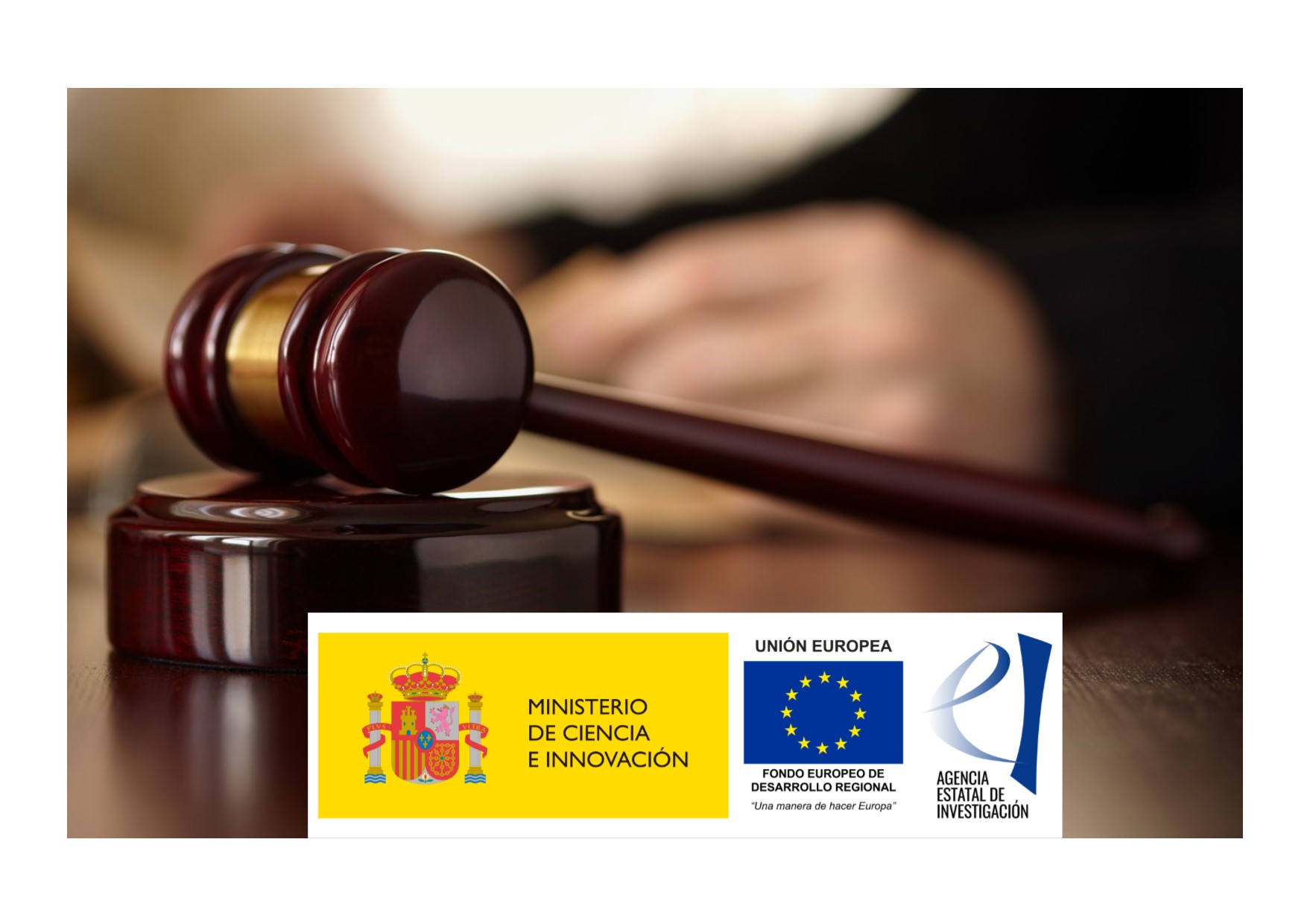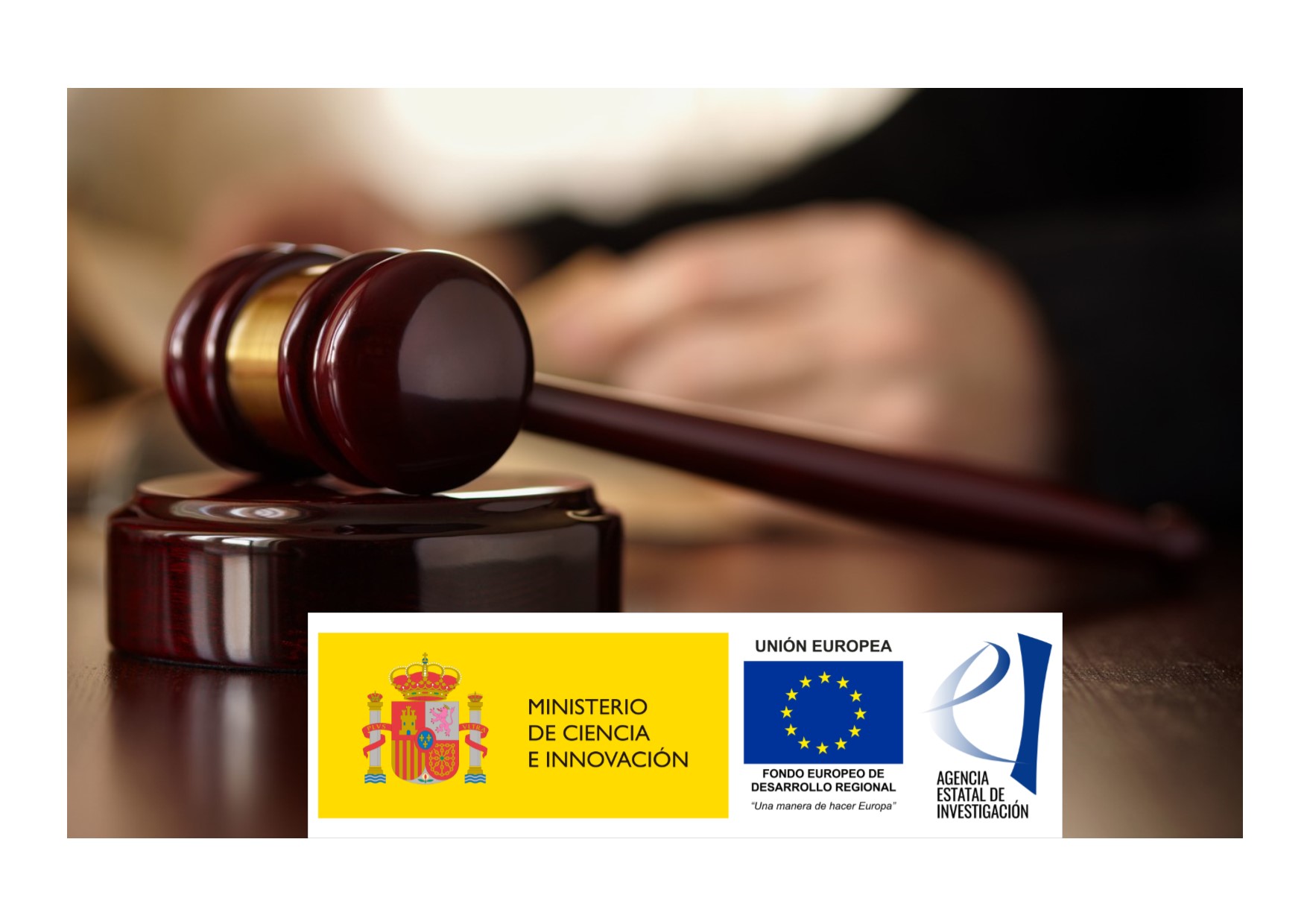DER2017-86336-R

In this context, and taking a multidisciplinary approach which harmonizes the theoretical study of Criminal Law with the empirical methodology of Criminology, this project aims to evaluate the foundations of this new paradigm of “Criminal Law of Dangerousness”. We seek to analyze how fundamental rights, as an inherent feature of a Democratic State, can operate in this new paradigm as a limit to the ius puniendi held by the state.
According to this framework, the specific goals of this project are the following:
- analyzing neuroscience’s implications with regard to the notions of imputability and culpability, as well as to recidivism risk assessment.
- reflecting on how the preeminence of the notion of dangerousness as the basis for criminalization can affect the principle of proportionality, with regard to both responsible persons and the criminally insane.
- enforcing the democratic meaning of the principle of legality, with an interpretation that includes the protection of fundamental rights as a constitutive part of the rule of law.
- analyzing the dichotomous role that fundamental rights are increasingly playing, as they are meant both to set a limit to public policies seeking security, as well as to serve as a justification to an extensive use of the Criminal Law (positive obligations, punishment and prevention, security as a fundamental right…)
- studying the legal design, foundation and implementation of supervised release, specially when applied on responsible subjects.
- relevance, implications and perils involving criminal risk assessment evaluation tools.
- analyzing some of the most common ways in which the criminal law of dangerousness currently manifests itself:
- study of the recidivism risk of offenders responsible of child pornography crimes (profiling, criminological needs, suitability of treatment programs)
- analysis of the terrorist as a dangerous subject form a public policy, criminological and legal perspective, especially when connected to jihadism, and when digital technologies are used: terrorism exaltation and self-indoctrination.
- Martinez Garay, Lucia
- PDI-Titular d'Universitat
- Carbonell Mateu, Juan Carlos
- PDI-Associat/Da Universitari/A
- Guardiola Garcia, Javier
- PDI-Titular d'Universitat
- Vicedega/Vicedegana / Vicedirector/a Ets
- Viana Ballester, Clara
- PDI-Contractat/Da Doctor/A
- Secretari/a de Facultat/Secretari/a Ets
Gili Pascual, Antoni
Llabrés Fuster, Antoni
- Correcher Mira, Jorge
- PDI-Contractat/Da Doctor/A
- Director/a Titulacio Master Oficial
- Secretari/a de Departament
- Responsables de Gestio Academica
- Coordinador/a Titulacio de Grau
- Galvis Domenech, Maria Jose
- PDI-Ajudant Doctor/A
- Quiles Minguez, Raquel
- Alumn.-Servei de Formacio Permanent
- Doctorand.
- Sanchez Vilanova, Maria
- PDI-Contractat/Da Doctor/A
- Coordinador/a Curs
- Soldino Garmendia, Virginia
- PDI-Ajudant Doctor/A
- Coordinador/a Curs
- Garcia Ortiz, Andrea Maria
- Doctorand.
Aucejo Navarro, José María
Peris Remón, Patricia
Sánchez-Escribano, María Isabel Montserrat
Funding Agency: "Proyect from I+D+i DER2017-86336-R, funding by MCIN/ AEI/10.13039/501100011033/ y “FEDER A way of making Europe”

* Congreso 20º aniversario de la entrada en vigor de la Ley Penal del Menor http://www.uv.es/recrim/20aLOR
*Online Conference "Derecho Penal y Orden Constitucional" https://ir.uv.es/Nc8TlK1
* "Report on the possibility of applying the crime against humanity to the 11-M attacks"
- AGE - Challenge

+10.10.12.png)










